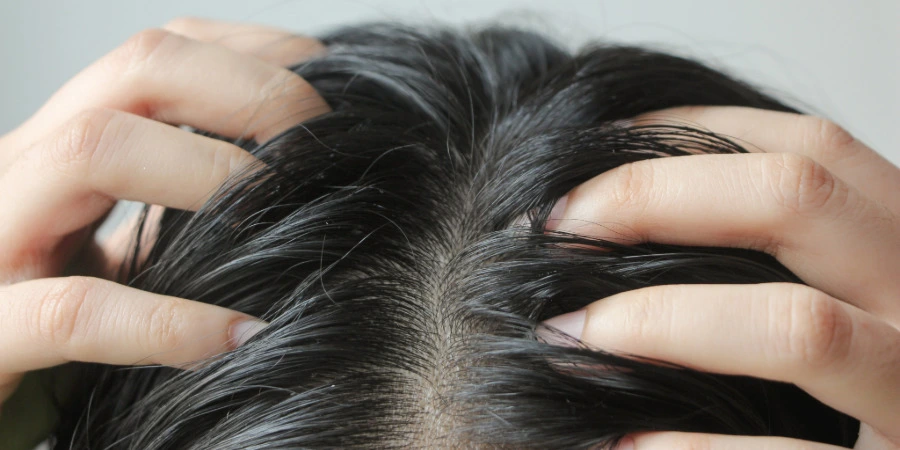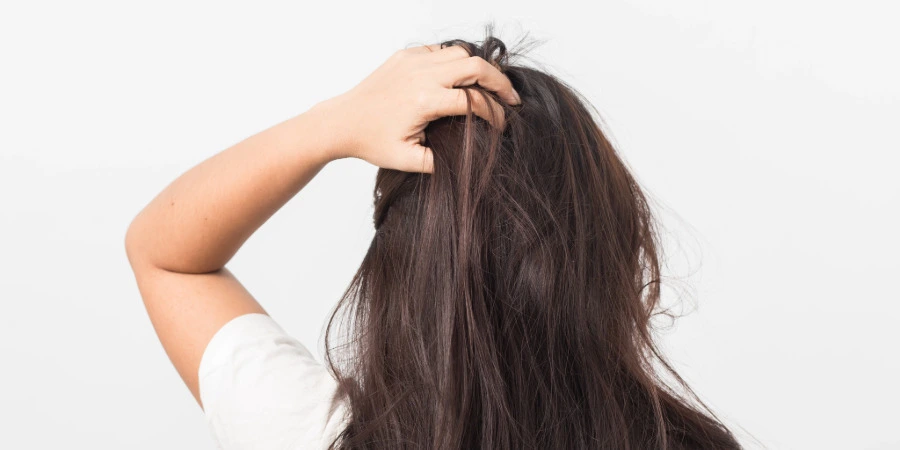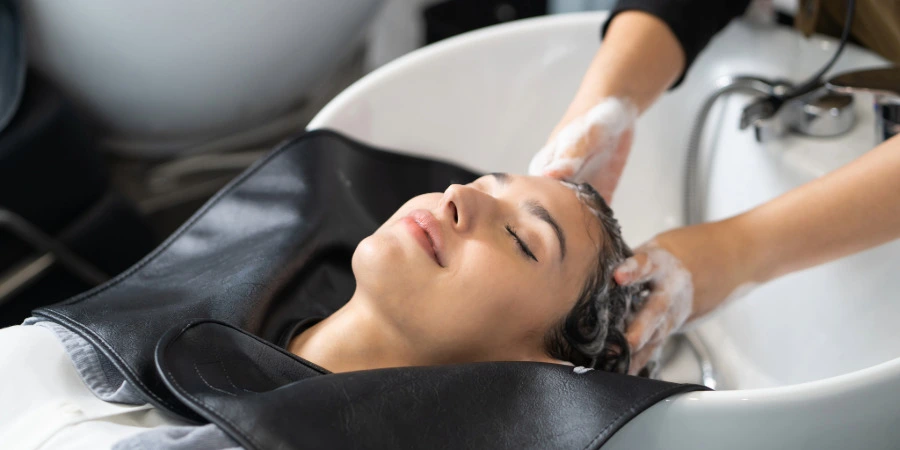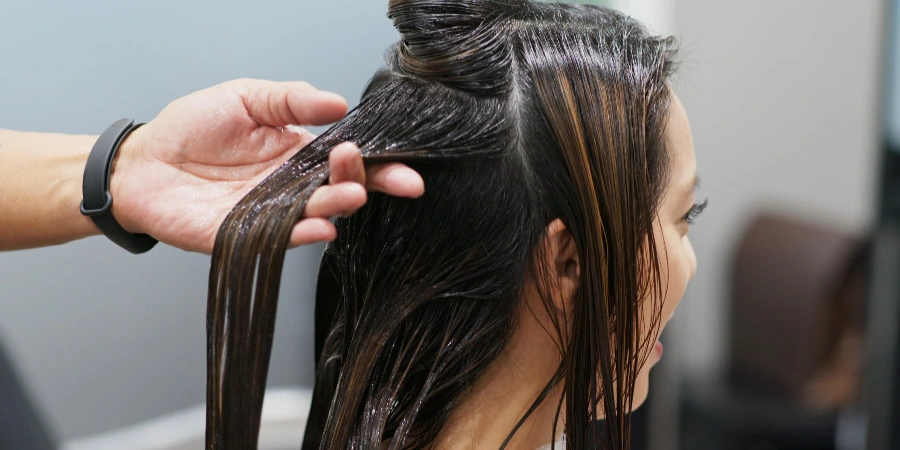{{ Interface.PageTitle }}

Dry scalp affects millions of people worldwide, causing uncomfortable itching, unsightly flakes, and diminished confidence in daily interactions. This common scalp condition occurs when your scalp doesn't produce enough natural oils or when external factors disrupt the delicate balance of your scalp's ecosystem. At Holistic Hair Care, we understand how frustrating dry scalp can be, and we're here to guide you through understanding, preventing, and treating this condition effectively.
Whether you're dealing with occasional dryness or chronic scalp issues, this comprehensive guide will provide you with the knowledge and solutions you need to restore your scalp's health and your confidence. Our experienced hair care specialists in Kepong, Cheras, and Puchong have helped countless clients overcome dry scalp challenges using holistic, natural approaches.
What is Dry Scalp?
Dry scalp is a condition characterized by insufficient moisture and oil production in the scalp, leading to tight, itchy, and flaky skin. Unlike dandruff, which is caused by excess oil and yeast overgrowth, dry scalp results from a lack of natural sebum production or damage to the scalp's protective barrier.
The scalp, like the skin on the rest of your body, requires a delicate balance of moisture and natural oils to maintain its health. When this balance is disrupted, the scalp becomes dehydrated, leading to the characteristic symptoms of dryness, irritation, and flaking.
Understanding the difference between dry scalp and other scalp conditions is crucial for effective treatment. While dandruff typically produces larger, oily flakes and may have a yellowish tint, dry scalp creates smaller, white flakes that are dry to the touch. The underlying skin may appear red or irritated, and the sensation is often described as tight or uncomfortable.

Signs and Symptoms
Recognizing the early signs of dry scalp can help you address the condition before it becomes more severe. The most common symptoms include:
- Itchiness and Irritation:
The first and most noticeable symptom is persistent itching, which may worsen throughout the day or after washing your hair. This itchiness often leads to scratching, which can further irritate the scalp and create a cycle of discomfort. - Flaking:
Small, white or grayish flakes that appear on your scalp, hair, and shoulders are a telltale sign of dry scalp. These flakes are typically smaller and drier than dandruff flakes and may increase after brushing or touching your hair. - Tightness:
Your scalp may feel tight or uncomfortable, similar to how your skin feels after prolonged sun exposure or in very dry weather conditions. This sensation is often most noticeable after washing your hair or in air-conditioned environments. - Redness and Irritation:
The scalp may appear red or inflamed, particularly in areas where scratching has occurred. This irritation can be visible through the hair, especially in areas with thinner hair coverage. - Hair Texture Changes:
Your hair may feel drier, more brittle, or difficult to manage. This occurs because the unhealthy scalp environment affects the hair follicles and the overall condition of your hair.
If you're experiencing these symptoms persistently, it's important to address them promptly to prevent the condition from worsening and to restore your scalp's natural balance.
Root Causes and Risk Factors
Understanding what causes dry scalp is essential for effective treatment and prevention. The primary causes include:
- Frequent Use of Hair Products:
One of the most significant contributors to dry scalp is the frequent use of hair styling products, shampoos with harsh chemicals, and treatments that disrupt the natural balance of sebum and pH levels on your scalp. These products can strip away natural oils and alter the scalp's protective barrier. - Environmental Factors:
Cold weather, low humidity, and excessive heat exposure can all contribute to scalp dryness. Air conditioning and heating systems can also remove moisture from the air, affecting your scalp's hydration levels. - Age-Related Changes:
As we age, our scalp produces less natural oil, making older adults more susceptible to dry scalp conditions. Hormonal changes, particularly during menopause, can also affect oil production. - Overwashing:
Washing your hair too frequently, especially with harsh shampoos, can strip away the natural oils your scalp needs to stay healthy. This is particularly problematic if you're using hot water, which can further dry out the scalp. - Underlying Skin Conditions:
Certain skin conditions like eczema or psoriasis can affect the scalp, leading to dryness and irritation. While these conditions require specialized care, they can often be managed with proper treatment. - Stress and Lifestyle Factors:
High stress levels, poor diet, and lack of adequate hydration can all impact your scalp's health. Stress can affect hormone levels and oil production, while poor nutrition can deprive your scalp of essential nutrients.
Types of Dry Scalp
Dry scalp can manifest in different ways depending on its severity and underlying causes:
- Mild Dry Scalp:
Characterized by occasional itching and minimal flaking, mild dry scalp is often seasonal or related to temporary factors like weather changes or product use. This type typically responds well to gentle care and moisturizing treatments. - Moderate Dry Scalp:
This involves more persistent symptoms including regular itching, visible flaking, and some redness. The condition may affect daily comfort and require more targeted treatment approaches. - Severe Dry Scalp:
Characterized by intense itching, significant flaking, visible redness, and potential hair texture changes. This level may require professional intervention and comprehensive treatment plans. - Localized Dry Scalp:
Some individuals experience dryness in specific areas, such as the hairline, crown, or behind the ears. This pattern can help identify specific causes and tailor treatment approaches. - Seasonal Dry Scalp:
Many people experience dry scalp symptoms that worsen during certain seasons, particularly winter months when humidity levels drop and heating systems are used more frequently.
Diagnosis and Professional Assessment

While dry scalp is often identifiable by its characteristic symptoms, a professional assessment can provide valuable insights into the specific causes and most effective treatment approaches. At Holistic Hair Care, our experienced hair care specialists conduct thorough evaluations to understand your unique situation.
During a consultation, our specialists will examine your scalp condition, discuss your hair care routine, and identify potential contributing factors. This comprehensive approach allows us to develop personalized treatment plans that address the root causes of your dry scalp condition.
A professional assessment typically includes reviewing your current hair care products, discussing your lifestyle factors, and examining your scalp's condition under proper lighting. This evaluation helps distinguish between dry scalp and other conditions that may require different treatment approaches.
Our specialists also consider factors such as your hair type, lifestyle, and any recent changes in your routine that might have contributed to your scalp condition. This holistic approach ensures that we address not just the symptoms but the underlying causes of your dry scalp.
Prevention Strategies
Preventing dry scalp is often more effective than treating an existing condition. Here are key strategies to maintain healthy scalp moisture:
- Gentle Hair Care Routine:
Choose mild, sulfate-free shampoos that won't strip your scalp of natural oils. Limit washing to 2-3 times per week unless you have very oily hair, and always use lukewarm water rather than hot water. - Product Selection:
Be mindful of the hair products you use regularly. Avoid products with harsh chemicals, excessive alcohol content, or strong fragrances that can irritate your scalp. When trying new products, introduce them gradually to monitor your scalp's response. - Environmental Protection:
Protect your scalp from extreme weather conditions by wearing appropriate headwear in cold or sunny weather. Use a humidifier in your home during dry seasons to maintain adequate moisture levels in the air. - Hydration and Nutrition:
Maintain proper hydration by drinking adequate water throughout the day. Include foods rich in omega-3 fatty acids, vitamins, and minerals that support scalp health, such as fish, nuts, seeds, and leafy greens. - Stress Management:
Implement stress-reduction techniques such as regular exercise, meditation, or relaxation practices. Stress can significantly impact your scalp's oil production and overall health. - Regular Scalp Care:
Incorporate gentle scalp massage into your routine to stimulate blood circulation and distribute natural oils. Use your fingertips, not your nails, to avoid irritation.
Treatment Options Overview
Effective dry scalp treatment requires a comprehensive approach that addresses both immediate symptoms and underlying causes. Treatment options range from simple lifestyle adjustments to professional interventions:

- Moisturizing Treatments:
The foundation of dry scalp treatment involves restoring and maintaining proper moisture levels. This includes using gentle, hydrating shampoos and conditioners specifically formulated for dry or sensitive scalps. - Natural Oil Treatments:
Certain natural oils can help restore the scalp's protective barrier and provide essential moisture. These treatments can be particularly effective when applied as part of a consistent care routine. - Professional Scalp Treatments:
Advanced treatments available at professional facilities can provide deeper moisturization and address specific scalp concerns. These treatments often combine multiple approaches for optimal results. Check out our professional treatments → - Lifestyle Modifications:
Adjusting your hair care routine, product choices, and environmental factors can significantly improve scalp health over time.
Living with Dry Scalp
Managing dry scalp effectively involves developing daily habits and strategies that support long-term scalp health:
- Daily Management:
Establish a gentle daily routine that includes proper scalp care without over-manipulation. This might include light scalp massage, gentle brushing with appropriate tools, and avoiding excessive touching or scratching. - Styling Considerations:
Choose hairstyles that don't put excessive tension on your scalp. Avoid tight ponytails, braids, or other styles that can further irritate already sensitive skin. When using heat styling tools, always apply a heat protectant and use the lowest effective temperature. - Confidence Building:
Remember that dry scalp is a common, treatable condition. Focus on the progress you're making rather than perfection, and don't let scalp concerns prevent you from enjoying daily activities. - Seasonal Adjustments:
Modify your routine based on seasonal changes. You may need more intensive moisturizing during winter months or lighter treatments during humid summer periods. - Long-term Maintenance:
Consistency is key to managing dry scalp effectively. Maintain your treatment routine even when symptoms improve to prevent recurrence.
When to Seek Professional Help
While many cases of dry scalp can be managed with proper home care, certain situations warrant professional intervention:
- Persistent Symptoms:
If your dry scalp symptoms persist despite consistent care and lifestyle modifications, it's time to consult with hair care specialists who can provide targeted solutions. - Worsening Condition:
If your symptoms are getting worse, spreading to other areas, or causing significant discomfort, professional assessment can help identify underlying issues and appropriate treatments. - Impact on Daily Life:
When dry scalp begins to affect your confidence, comfort, or daily activities, professional support can help you regain control of your scalp health. - Uncertain Diagnosis:
If you're unsure whether you're dealing with dry scalp or another condition, professional evaluation can provide clarity and ensure you're using the most appropriate treatment approach.
At Holistic Hair Care, our experienced specialists in Kepong, Cheras, and Puchong are ready to help you overcome dry scalp challenges. We provide comprehensive consultations, personalized treatment plans, and ongoing support to help you achieve healthy, comfortable scalp conditions.
Frequently Asked Questions

- Q: How can I tell the difference between dry scalp and dandruff?
A: Dry scalp typically produces smaller, white, dry flakes and is accompanied by tight, itchy sensations. Dandruff usually creates larger, oily, yellowish flakes and is often associated with an oily scalp. The underlying causes and treatments for these conditions are different, which is why proper identification is important. - Q: How often should I wash my hair if I have dry scalp?
A: Most people with dry scalp benefit from washing their hair 2-3 times per week with a gentle, moisturizing shampoo. Over-washing can strip away natural oils and worsen the condition. However, the ideal frequency may vary based on your hair type and lifestyle. - Q: Can dry scalp cause hair loss?
A: While dry scalp itself doesn't directly cause permanent hair loss, persistent scratching and irritation can damage hair follicles and lead to temporary hair breakage or thinning. Addressing the underlying scalp condition typically helps prevent these issues. - Q: Are there any home remedies that can help with dry scalp?
A: Some natural approaches may provide relief, such as gentle scalp massage, using lukewarm water for washing, and avoiding harsh hair products. However, persistent dry scalp often requires professional guidance to address underlying causes effectively. - Q: How long does it take to see improvement in dry scalp condition?
A: With consistent proper care, many
people notice improvement within 2-4 weeks. However, the timeline can vary depending on the severity of the condition, underlying causes, and individual response to treatment. Patience and consistency are key to achieving lasting results. - Q: Can weather changes affect my dry scalp?
A: Yes, weather changes, particularly cold, dry conditions or low humidity environments, can significantly impact scalp moisture levels. Many people experience worsening symptoms during winter months or in air-conditioned spaces. - Q: Is dry scalp more common in certain age groups?
A: While dry scalp can affect people of all ages, it's more common in older adults due to decreased natural oil production. However, younger individuals can also experience dry scalp due to product use, environmental factors, or lifestyle choices. - Q: What should I look for when choosing hair care products for dry scalp?
A: Look for gentle, sulfate-free shampoos with moisturizing ingredients. Avoid products with harsh chemicals, excessive alcohol, or strong fragrances. Products specifically formulated for sensitive or dry scalps are often good choices.
Conclusion
Dry scalp is a manageable condition that responds well to proper care and professional guidance. Understanding the causes, symptoms, and treatment options empowers you to take control of your scalp health and restore comfort and confidence.
The key to successfully managing dry scalp lies in identifying and addressing the underlying causes while maintaining consistent, gentle care routines. Whether your dry scalp is caused by product use, environmental factors, or other contributing elements, effective solutions are available.
At Holistic Hair Care, we're committed to helping you achieve optimal scalp health through personalized, holistic approaches. Our experienced hair care specialists in Kepong, Cheras, and Puchong understand that every individual's scalp needs are unique, and we're here to provide the professional guidance and support you need.
Don't let dry scalp continue to impact your comfort and confidence. Take the first step toward healthier scalp conditions by scheduling a consultation with our specialists. Together, we can develop a comprehensive treatment plan that addresses your specific needs and helps you achieve the healthy, comfortable scalp you deserve.
Contact Holistic Hair Care today to begin your journey toward optimal scalp health. Your scalp deserves professional care, and we're here to provide it.
